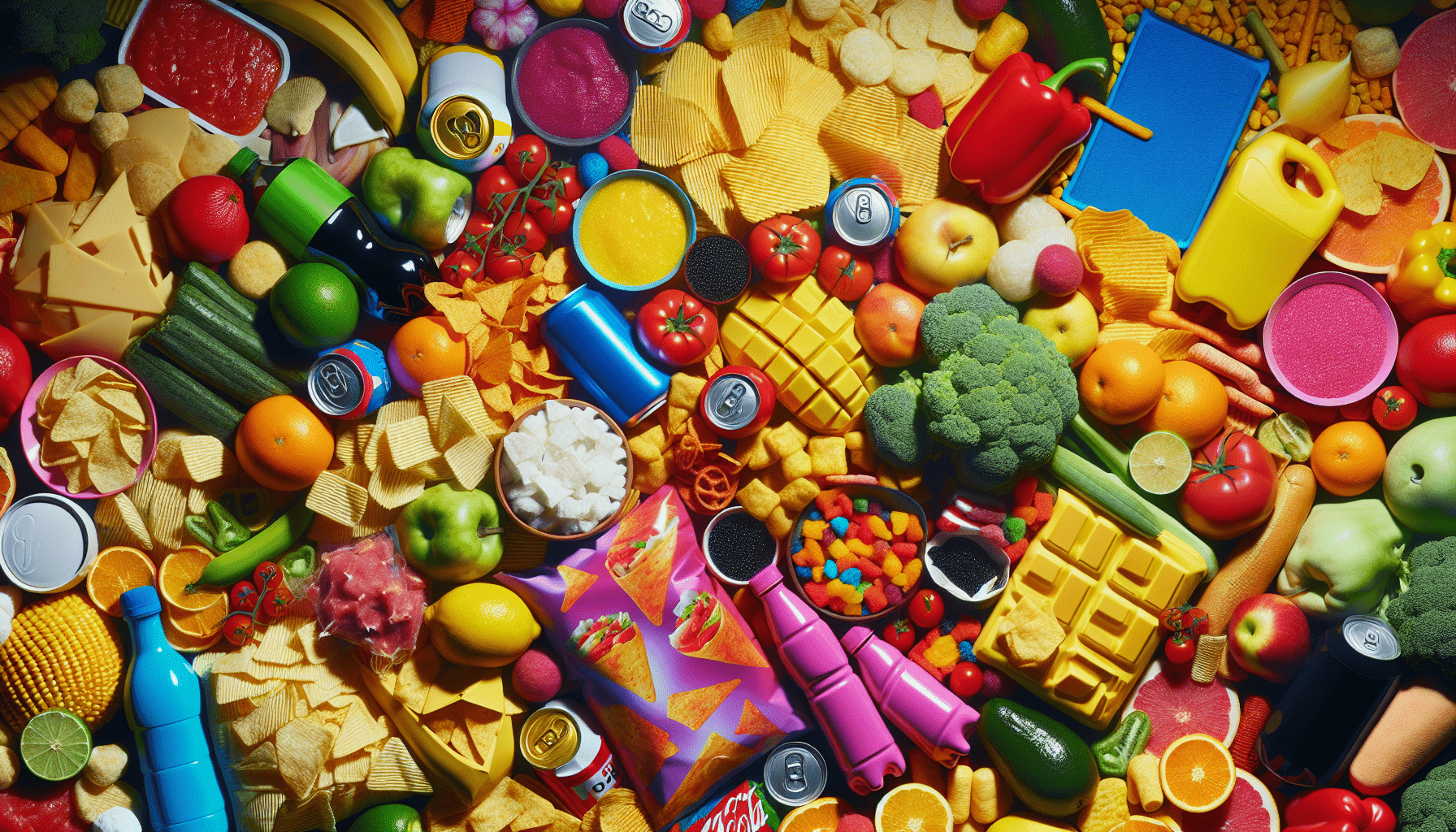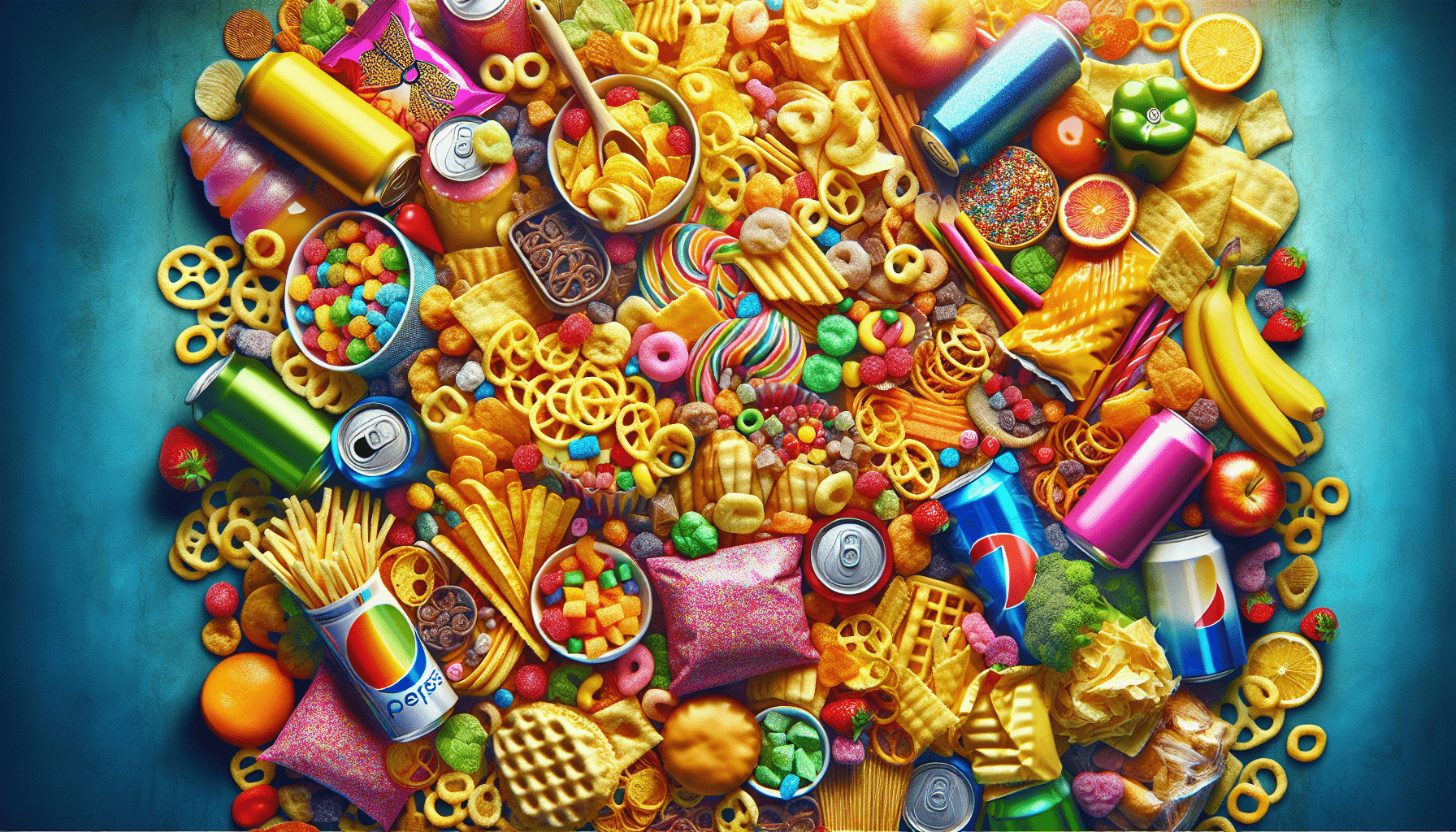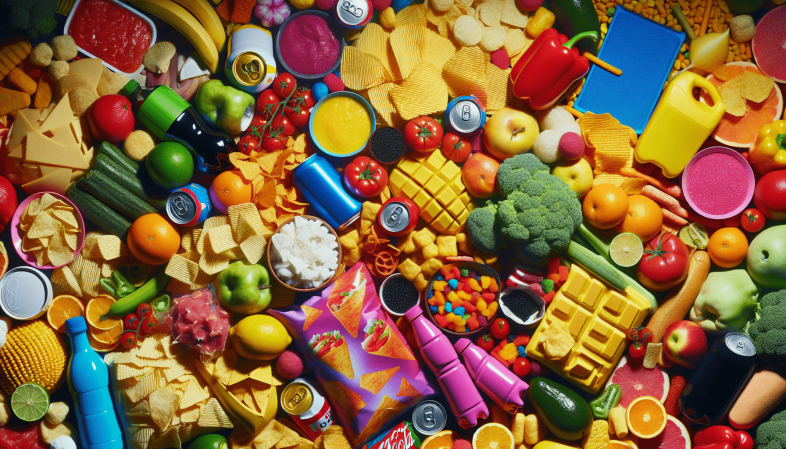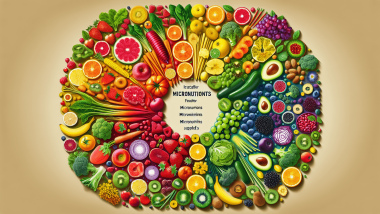Are you aware of the potential harm lurking in your pantry? In recent years, a growing body of research has shed light on the health risks posed by ultra-processed foods. From obesity to chronic diseases, these heavily processed products have been linked to a range of alarming conditions. In this article, we will delve into the dangers of ultra-processed foods and help you truly understand the impact they can have on your well-being. Brace yourself for an eye-opening journey that may just change the way you stock your kitchen.
What are Ultra-Processed Foods?
Definition of Ultra-Processed Foods
Ultra-processed foods are packaged and industrially processed products that contain a high number of additives, artificial ingredients, and preservatives. These foods often undergo multiple stages of processing and have little resemblance to their original form. They are typically found in the aisles of supermarkets, conveniently packaged and ready to eat or reheat.
Common Examples of Ultra-Processed Foods
Some common examples of ultra-processed foods include fast food items like burgers, fries, and pizzas, packaged snacks and sweets, soft drinks, sugary cereals, frozen meals, and flavored chips. These foods are often characterized by their long ingredient lists, which are loaded with artificial flavors, colors, stabilizers, and preservatives.
Health Risks Associated with Ultra-Processed Foods
Increased Risk of Obesity
Consuming ultra-processed foods has been strongly linked to an increased risk of obesity. These foods are often high in calories, unhealthy fats, added sugars, and refined carbohydrates, all of which contribute to weight gain. The combination of excessive calorie intake, low nutrient density, and the addictive properties of ultra-processed foods can lead to overeating, making it difficult to maintain a healthy weight.
Cardiovascular Health Issues
Regular consumption of ultra-processed foods has been associated with an increased risk of cardiovascular diseases such as heart disease and stroke. These foods are often high in trans fats, saturated fats, and cholesterol, which can raise bad cholesterol levels and increase the likelihood of developing atherosclerosis, hypertension, and other cardiovascular problems.
Type 2 Diabetes
The consumption of ultra-processed foods has also been linked to an increased risk of developing type 2 diabetes. These foods tend to be high in added sugars and refined carbohydrates, which can cause rapid spikes in blood sugar levels and insulin resistance over time. This can ultimately lead to the development of diabetes and its associated complications.
Cancer
Some studies have shown that a high intake of ultra-processed foods may be associated with an increased risk of certain types of cancer, including breast, colorectal, and stomach cancer. While more research is needed to fully understand the link between ultra-processed foods and cancer, it is believed that the combination of unhealthy ingredients, additives, and the lack of protective nutrients can contribute to the development of cancer cells.
Digestive Problems
Ultra-processed foods are typically low in dietary fiber, which is essential for maintaining a healthy digestive system. The lack of fiber in these foods can lead to constipation, bloating, and other gastrointestinal issues. Additionally, the additives and preservatives present in ultra-processed foods may disrupt the balance of bacteria in the gut, leading to further digestive problems and a weakened immune system.

High Levels of Added Sugars
Sugar and its Link to Health Problems
Consuming excessive amounts of added sugars, commonly found in ultra-processed foods, can have detrimental effects on your health. High sugar intake has been linked to an increased risk of obesity, type 2 diabetes, heart disease, and tooth decay. It can also lead to inflammation, insulin resistance, and an imbalance in blood sugar levels.
Hidden Sugars in Ultra-Processed Foods
One of the major concerns with ultra-processed foods is the high amount of hidden sugars they contain. While some foods may taste savory or salty, they often have added sugars to enhance flavor and increase palatability. These hidden sugars can be found in sauces, condiments, salad dressings, canned goods, and even savory snacks. It is important to check the ingredient lists and nutrition labels to be aware of the sugar content in these foods.
Negative Effects of Excessive Sugar Consumption
Consuming excessive amounts of sugar can lead to a range of health problems. It can contribute to weight gain, increase the risk of developing chronic diseases, and negatively impact oral health. Excessive sugar intake can also cause energy crashes, mood swings, and cravings for more sugar, creating a cycle of poor dietary choices and potential health consequences.
Artificial Additives and Preservatives
Common Additives and Preservatives
Ultra-processed foods are loaded with artificial additives and preservatives to enhance their flavor, texture, appearance, and shelf life. Some common additives and preservatives found in these foods include artificial flavors and colors, preservatives like sodium benzoate and BHA, emulsifiers, stabilizers, and texturizers.
Negative Effects on Health
Consuming foods with artificial additives and preservatives has been linked to various health concerns. Some studies suggest that these additives may cause allergic reactions, hyperactivity in children, and negative effects on the liver and kidney function. Some preservatives, like sodium benzoate, may also form potentially harmful compounds when combined with certain ingredients or conditions.
Allergic Reactions
Artificial additives and preservatives in ultra-processed foods can trigger allergic reactions in individuals who are sensitive or allergic to these substances. Common food additives such as sulfites, monosodium glutamate (MSG), and artificial food coloring have been known to cause allergic symptoms like hives, itching, swelling, and difficulty breathing in some people.

Imbalanced Nutrient Profile
Lack of Essential Nutrients
Ultra-processed foods are typically lacking in essential nutrients. They often replace whole, unprocessed ingredients with refined grains, unhealthy fats, and added sugars, resulting in a nutrient-poor diet. This lack of essential nutrients, such as vitamins, minerals, and fiber, can lead to malnutrition, micronutrient deficiencies, and overall poor health.
Excess Sodium Intake
Many ultra-processed foods contain high levels of sodium as a preservative and flavor enhancer. Excessive sodium intake has been linked to hypertension, heart disease, stroke, and kidney problems. Consuming too much sodium can also contribute to water retention, bloating, and increased blood pressure.
Imbalanced Macronutrients
Ultra-processed foods often have an imbalanced macronutrient profile, meaning they contain a disproportionate amount of unhealthy fats, refined carbohydrates, and minimal protein or healthy fats. This can lead to imbalances in blood sugar levels, insatiable hunger, and an increased risk of weight gain and chronic diseases.
Impact on Gut Health
Negative Effects on Gut Microbiota
Ultra-processed foods can have a detrimental impact on the diversity and balance of the gut microbiota. These foods are typically low in fiber and beneficial nutrients, which are essential for maintaining a healthy gut microbiome. As a result, the consumption of ultra-processed foods can lead to an overgrowth of harmful bacteria, inflammation, and an increased risk of digestive disorders.
Digestive Disorders
Regular consumption of ultra-processed foods has been associated with an increased risk of digestive disorders such as irritable bowel syndrome (IBS), inflammatory bowel disease (IBD), and gastrointestinal cancers. The lack of fiber and beneficial nutrients in these foods, combined with the presence of additives and preservatives, can disrupt the digestive process and contribute to the development of these conditions.
Psychological Effects
Addictive Properties of Ultra-Processed Foods
Ultra-processed foods are often engineered to be highly palatable and addictive. They are designed to trigger the reward centers in the brain and create a sense of pleasure and cravings, similar to the effects of drugs of abuse. The combination of added sugars, unhealthy fats, and artificial additives can make it difficult to resist the temptation to indulge in these foods, leading to overeating, loss of control, and potential addiction-like behaviors.
Mood and Mental Health Effects
The consumption of ultra-processed foods has been associated with negative effects on mood and mental health. Studies have suggested that a diet high in ultra-processed foods is linked to an increased risk of depression, anxiety, and other mental health disorders. The lack of essential nutrients, the imbalance of macronutrients, and the presence of artificial additives may contribute to these negative effects on mental well-being.
Reduced Satiety and Overeating
Low Satiety Levels
Ultra-processed foods often lack the important components that promote satiety, such as fiber, protein, and healthy fats. As a result, consuming these foods can leave you feeling unsatisfied and hungry soon after, leading to overeating and potentially exceeding your daily caloric needs. This cycle of low satiety levels and excessive food intake can contribute to weight gain and an increased risk of obesity.
Influence on Hunger and Cravings
The highly processed nature of these foods, combined with their addictive properties, can have a significant impact on hunger and cravings. Ultra-processed foods are designed to be hyperpalatable, meaning they stimulate the brain’s reward system and intensify cravings. This can lead to a constant desire for these foods and difficulty in controlling food intake, often resulting in overconsumption and an unhealthy relationship with food.
Processing Methods and Health Concerns
Loss of Nutritional Value
The extensive processing methods used in the production of ultra-processed foods often result in a loss of nutritional value. Processing techniques such as refining, heating, and freezing can significantly reduce the vitamin, mineral, and antioxidant content of these foods. This means that even if some nutrients are added back, they may not be absorbed and utilized as effectively by the body.
Formation of Harmful Compounds
Certain processing methods can lead to the formation of harmful compounds in ultra-processed foods. For example, high-temperature cooking methods like frying, grilling, and baking can produce acrylamide, a potentially carcinogenic substance. Similarly, the processing of meat products can lead to the formation of nitrosamines, which are also associated with an increased risk of cancer.
Effects of Cooking Methods
Ultra-processed foods often require minimal cooking or preparation, making them convenient but potentially harmful to health. High-heat cooking methods, such as deep-frying or microwaving, can further degrade the nutritional quality of these foods while potentially introducing harmful compounds. Opting for healthier cooking methods, such as steaming, boiling, or baking with whole, unprocessed ingredients, is essential for maximizing nutrient retention and minimizing the formation of harmful substances.
The Importance of a Balanced Diet
Emphasizing Whole, Unprocessed Foods
To maintain good overall health, it is crucial to prioritize whole, unprocessed foods in your diet. These foods are typically rich in essential nutrients, fiber, and antioxidants, providing numerous health benefits. Filling your plate with a variety of fruits, vegetables, whole grains, lean proteins, and healthy fats can help you meet your nutrient needs while reducing your reliance on ultra-processed foods.
Healthier Alternatives to Ultra-Processed Foods
Making conscious choices and opting for healthier alternatives can help minimize the consumption of ultra-processed foods. Instead of reaching for sugary cereals, consider starting your day with a bowl of oatmeal topped with fresh fruit and nuts. Rather than relying on frozen meals, create wholesome homemade meals using fresh ingredients and minimal processing. Snack on nuts, seeds, or fresh fruit instead of reaching for packaged chips or candies. These simple swaps can go a long way in improving your overall health and reducing the risks associated with ultra-processed foods.
In conclusion, understanding the health risks of ultra-processed foods is essential for making informed dietary choices. These foods are often high in unhealthy fats, added sugars, artificial additives, and preservatives, which can contribute to obesity, cardiovascular problems, diabetes, cancer, digestive issues, and more. By prioritizing whole, unprocessed foods, reducing the consumption of added sugars, choosing foods with minimal artificial additives, and adopting healthier cooking methods, you can take steps towards a balanced diet and better overall health.


